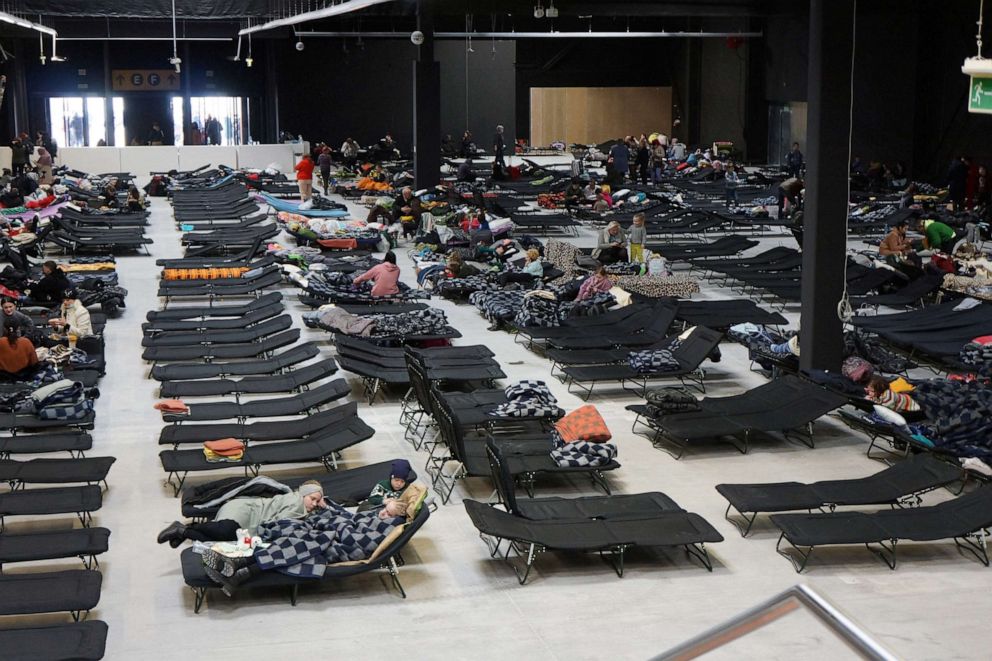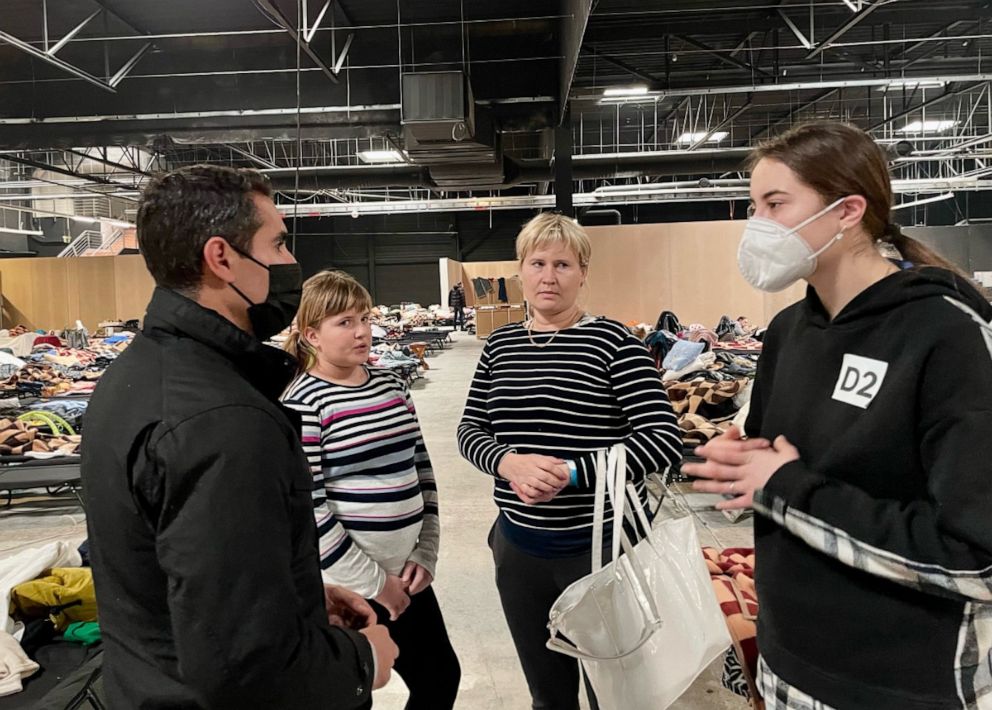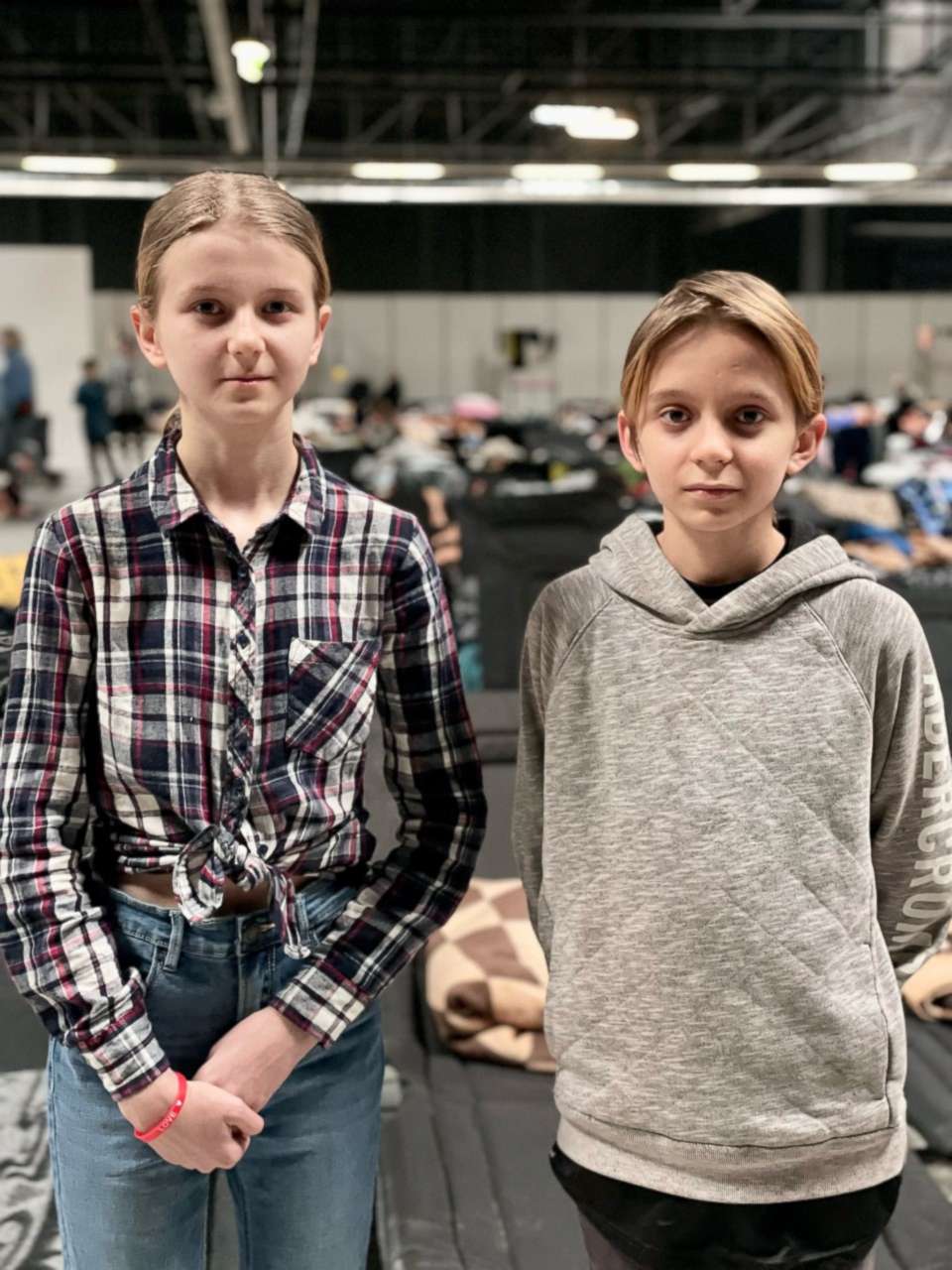Reporters' notebook: Inside a Poland refugee hub
Normally home to trade shows, it's now lined with cots.
WARSAW -- The Warsaw Expo in Poland is currently home to roughly 8,000 refugees, mostly women and children.
The space is massive. Normally home to trade shows, it's now lined with cots. There are medical centers and play areas for kids, too.
What makes this shelter different from others, besides the size, is that there's a makeshift bus station inside.
Multiple buses shuttle refugees to different countries throughout the European Union every single day. There are screens, like you'd find at a station, with schedules and destinations. Here, the tickets are free.
That's the model: Provide a temporary place for refugees to stay and then move them along. It helps ease the burden on Warsaw and Poland. Refugees are only supposed to stay for a few days -- four max -- before finding a more permanent solution.

The latest figures from the United Nations show over 3 million people have fled Ukraine since Russia invaded on Feb. 24. Poland has carried the weight of this displacement, as 1.8 million refugees went there.
Warsaw, with a population of about 1.8 million, has accepted over 300,000 refugees, which is more than any other city has accepted. Mayor Rafał Trzaskowski told us the population here has increased by 20% in less than three weeks -- and the pace is not sustainable.
Ukrainians have been granted access to education, health care and social services, but he's calling for a more long-term plan.
"What I'm asking of all my friends in the Western world, help us out, and let's do it in a way that is well planned. Enough of improvisation, we need a plan," he said.
The other neighboring countries are also in need of a plan. Moldova, one of Europe's poorest countries, is working hard to funnel the 344,000 who have arrived to other countries. There's a shuttle bus that takes them to Romania.

Every day, tens of thousands of people are streaming into Slovakia, where there is a large Ukrainian community, but the Médecins Sans Frontières team on the border there note a change in profile of the refugees -- "people seem to be more vulnerable and travel on foot for many kilometers in harsh conditions," its latest report said.
Similarly, other European countries are saying they are finding it hard to cope. The Czech Republic has said it has reached capacity and has applied for EU funding for "humanitarian bases."
Belgium has seen an influx and is struggling to process the arrivals, according to reports. Over 150,000 have gone to Germany and 50,000 to Italy. But most want to stay close to Ukraine as they hope to return home soon.
At the Warsaw Expo, a member of the management board explained to us how quickly they set the space up, the challenges, and why the bus station is so important. She called it Europe's largest refugee hub.

We also spoke with a couple young children and parents, who did not provide last names for security reasons. One 13-year-old boy, Artiom, told us he misses home and his friends, but he doesn't expect to ever go back. He just wants to be happy somewhere else.
A mother, Natalia, and daughter, Darina, who'd just arrived spoke with us as well. Natalia showed us cell phone video of the destruction left behind in her neighborhood and described how frightening the journey out was with her daughter.
Just some of the 1.5 million children who've been displaced since the beginning of the war.
ABC News' Zoe Magee contributed to this report.



